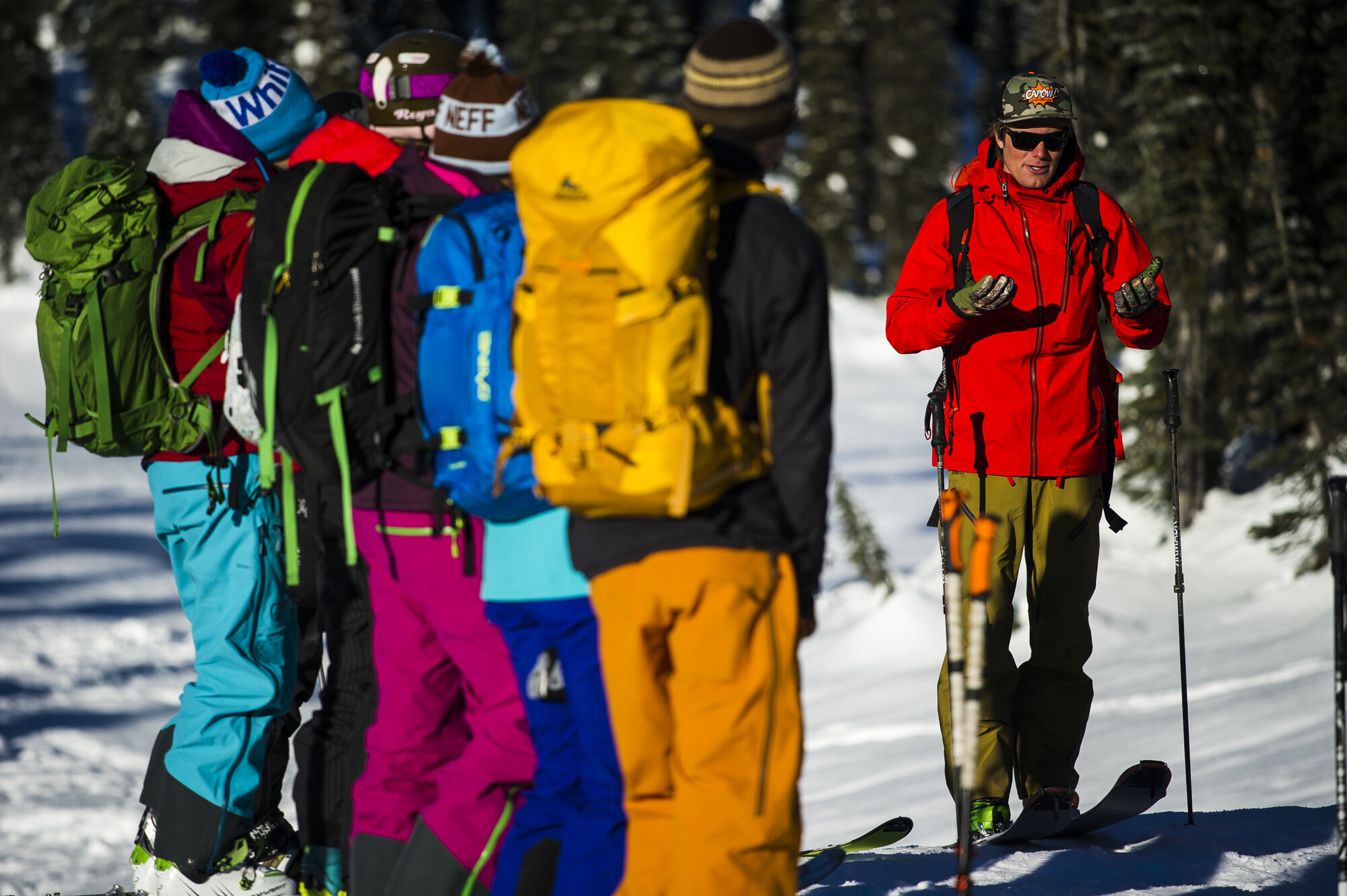WHY YOU SHOULD UPGRADE YOUR AVALANCHE SKILLS: Q+A WITH MARTY SCHAFFER
Interview by Meghan J. Ward
It’s hard to come by a better spokesperson for avalanche safety than Marty Schaffer. This ACMG Ski Guide has grown up in the ski industry his whole life, works closely with Avalanche Canada, and now runs his own ski guiding operation, CAPOW – Canadian Powder Guiding. He gives us the low-down on why backcountry ski and snowboard enthusiasts should upgrade their Avalanche Skills Training, what an AST 2 course has to offer, and what the biggest mistakes are that he’s seen in avalanche terrain assessment.
MJW/ Can you tell me how you got involved with Avalanche Canada?
MS/ Essentially I’ve been involved in the avalanche industry my whole life, growing up at the Blanket Glacier Chalet and having my father as a guide and avalanche educator. I’m so stoked to see the standardization of avalanche education and information in Canada. They’re doing great things, and we’re so lucky to have Avalanche Canada as such an awesome resource.
I’ve been involved with Avalanche Canada through a variety of outreach events over that past three years. They have essentially given me full reign on creating content to deliver (very similar to this year’s Winterstoke event). I’ve also worked closely with Chris Rubens (pro skier) and Joe Lammers (Senior Avalanche Forecaster) on other events called Shreducation and the yearly backcountry refresher during the Calgary ski fest, Freshtival – all with such positive and good vibed turn-outs.
I am also involved through my company, CAPOW! We offer AST 1 and 2 trips throughout the winter.
MJW/ What’s the difference between AST1 and AST2?
MS/ What’s really important with decisions in avalanche terrain is that the education really is endless. The Avalanche Skills Training courses are set up really well to streamline the understanding of where and how to gather information to make the best possible decisions, and then tools if shit were to ever hit the fan. It’s very common that people have taken an AST 1, but it’s not as common to take an AST 2. I feel the two are very important pieces for every backcountry tourer to go through.
It seems well-known that the AST 1 is like your ticket of passage in order join a group in avalanche terrain decision-making. During one weekend it covers where to gather information, and the first steps of understanding companion avalanche rescue if shit hits the fan. For the most part, you leave with the understanding that the more you know in avalanche terrain, the more you don’t know! And that’s very important…this really is just the start.
The next step is to gain experience with your touring group, seek out mentorship from those with more experience and practice as much and as often as you can with your avalanche safety equipment.
The AST 2 (taught over 4 days) takes everything that much further. It now has a focus on applying everything into the terrain. Not just learning where and how to gather information to make a decision, but understanding what best terrain practices are and actually applying it.
MJW/ Who should be taking the AST2 Course?
MS/ I really see it as a must for any backcountry skier. It’s just a key part of the process of decision-making in avalanche terrain. It’s cool to see all levels of shredders take a lot out of the – even pro skiers and riders. It is key to take an AST 1 course prior to taking AST 2.
MJW/ What kinds of tools can people expect to walk away with from AST2?
It’s all really about understanding what tools are available and how to properly use them. The curriculum in the field will use route-finding to take advantage of nuances in terrain to manage personal risk. You’ll use travel techniques in avalanche terrain appropriate to the avalanche conditions. Then, of course, a large section on one of the days will be about comprehensive and proficient techniques to carry out companion avalanche rescue.
MJW/ What are the biggest/most common mistakes you’ve seen made when it comes to avalanche terrain assessment?
In general, it’s overconfidence… and in a sense it’s almost a lack of respect for the mountains. It’s always stuck with me that being a good avalanche forecaster won’t save your life, it’s the best terrain practices that will.
MJW/ Anything else you’d like to add?
We’re so lucky in Canada with the courses, resources and mentors we have in the backcountry. In a lot of ways the AST courses bring this all together and set you up for success.
Meghan J. Ward is a writer, editor, digital content specialist and all-around storyteller based in Banff, Canada. Meghan loves any sport that takes her up a mountain or into the backcountry, and also enjoys travel and photography.


